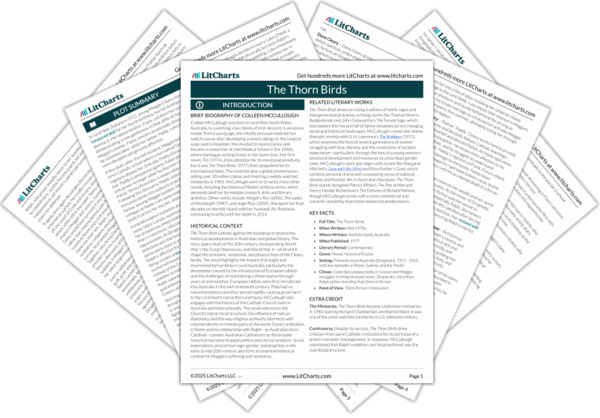The thorn bird symbol encapsulates the novel’s exploration of love, sacrifice, and the painful pursuit of unattainable ideals. According to the legend, the thorn bird spends its life searching for the perfect thorn, which it uses to pierce its own breast. In that final moment of suffering, it sings the most beautiful song it will ever produce. For Meggie, the thorn bird represents her lifelong pursuit of a love she can never fully possess. Yet Meggie chooses this painful path, pursuing her feelings despite the inevitable heartbreak they bring. Like the thorn bird, she embraces a love that will wound her, believing that the depth of feeling justifies the suffering. Even as she loses Ralph and later Dane, she never stops loving. Her choice to love—knowing it will bring pain—mirrors the bird’s choice to sing its most beautiful song at the cost of its life.
